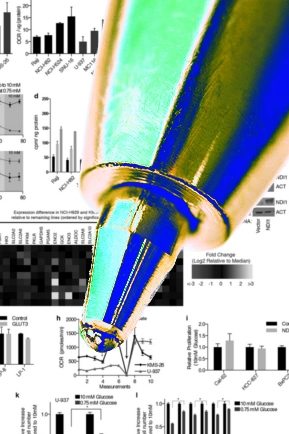Business links boosted for "ideas boom"
 The Federal Government has put up almost $1.1 billion to promote business-based research, development and innovation over the next four years.
The Federal Government has put up almost $1.1 billion to promote business-based research, development and innovation over the next four years.
Prime Minister Malcolm Turnbull released his Innovation Statement in Canberra today, saying he wanted to kick off an “ideas boom”.
The plan seeks to strengthen ties between the business community, universities and scientific institutions.
A $200 million innovation fund has been set up to co-invest in businesses working on technology from the CSIRO and Australian universities.
There is also money to help students in years 5 and 7 learn coding.
Early stage investors in start-up businesses will be able to apply for a 20 per cent non-refundable tax offset and a capital gains tax exemption.
Those investing in new early stage venture capital partnerships will get a 10 per cent offset.
Mr Turnbull said Australia needed to stop relying on the mining boom.
“What is going to drive Australian prosperity in the years ahead? How does our economy transition?” Mr Turnbull asked at the launch at CSIRO in Canberra.
“Our innovation agenda is going to help create the modern, dynamic 21st century economy Australia needs.
“Unlike a mining boom, it is a boom that can continue forever, it is limited only by our imagination, and I know that Australians believe in themselves, I know that we are a creative and imaginative nation.”
The major initiatives are:
- $106 million in tax incentives for “angel” investors, who provide seed funding in the early years of a venture's creation
- $75 million to the CSIRO's data research arm Data 61
- $30 million for a Cyber Security Growth Centre to create business opportunities in cyber security, which the Government spends $5 billion on each year
- $15 million over four years towards a $200 million CSRO Innovation Fund
- $10 million over four years towards a $250 million Biomedical Translation Fund, in partnership with the private sector
Australians wishing to export their ideas overseas will also be paid to do so, with a $36 million ‘Global Innovation Strategy’.
The funds will help local companies move to Silicon Valley, Tel Aviv or three other locations.
Insolvency laws for failed start-ups will be reduced, with the default period for bankruptcy going from three years to one year.
In addition, Australia’s falling maths and science standards will be addressed by a $48 million Science Technology Engineering and Mathematics (STEM) literacy program, $14 million to encourage women and girls into the sector, and $51 million for to promote “digital literacy”.
Industry Minister Christopher Pyne said most of the 24 measures in the plan will get going in July 2016.
“This is an agenda that is about jobs, it's about growth, it's about the future of the Australian economy.”








 Print
Print